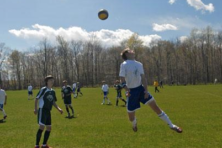Child and Adolescent Trauma
- Share
- Tweet
- Pin
- Share
It is very easy to minimize the dynamics of a traumatic situation in our society.
Many have been raised to just “deal with it,” “it could have been worse,” or a flat out “you’re overreacting and are so dramatic… you must have done something to bring this on after all…you’re a teen.”
In cases that involve domestic or sexual crimes there is a tendency to try to deny the impact that it can cause a child or adolescent. Many sexual crime cases are non violent in the fact that there may not be physical force that is used, which can be very confusing to the victims involved in identifying it as a traumatic experience or even as a crime.
Many teens who are in an intimate relationship with an older person even though they said “no” or were coerced into sexual acts do not associate as being a victim of a crime or as the experience being traumatic. If the sexual relationship is their first without any prior experiences they may easily assume that this must be love and are often told by the offender that it is love. In some cases the child/adolescent is too embarrassed to tell about what happened to them because the person is well known. Who would believe them? Some victims are afraid of getting blamed for being part of the act.
In children and adolescents, trauma undermines the development of the prefrontal cortex of the brain. This part of the brain is responsible for three basic functions of thinking. This part of the brain takes into consideration the consequences of behavior, the realistic assessment of danger and safety, and the ability to manage behavior and meet longer-term goals. How crucial to the development of a child!
Healing can take place, but help is needed. Typical trauma reactions can show up as attachment difficulties, sexualized behaviors, suicidal thoughts and/or tendencies, eating disorders, sleep disturbances, and substance abuse. For any human to experience trauma and heal, there is the need for stable and supportive people to care for the person. Maximized safety plans needs to be a top priority, reducing overwhelming emotions and helping children make some meaning of their trauma, and the utilization of support systems. Brain research has shown that the sooner someone reaches out in a crisis situation the better outcome emotionally and developmentally for the person.
If you or someone you know is unsafe and would like to speak to an advocate please call HELP of Door County, Inc. at 920.743.8818 or the Sexual Assault Center at 920.746.8996.
This article is brought to you in part by the Door County Coordinated Community Response (CCR) to Domestic Violence and Sexual Assault Teams.


